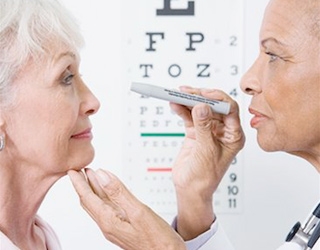Protect Your Vision With These 6 Tips
Get regular eye exams.
It’s important to get a regular comprehensive checkup by an optometrist or ophthalmologist at least once a year if you’re older than 60. Be sure that the exam includes eye dilation so that any change in your lens or retina can be spotted easily and early.

Protect your eyes from the sun.
Protect your eyes from the sun.
One of the top causes of cataracts is radiation from the sun. Take steps to protect your eyes by wearing sunglasses and a hat with a brim whenever you are out in bright daylight.

Stop smoking.
Stop smoking.
As if you needed another reason to quit this unhealthy habit, smoking can damage your vision. Smoking cigarettes increases your risk of both cataracts and macular degeneration, in part because it creates free radicals and in part because smoking decreases the amount of oxygen to the eye.

Beware of alcohol and beta-carotene.
If you smoke, beware of alcohol and beta-carotene.
I strongly urge you to stop smoking, but if you haven’t yet quit entirely, I need to add a couple guidelines about some dangerous combinations. Although drinking alcohol in moderation doesn’t appear to increase the risk for cataracts on its own, smokers who drink alcohol have a greater risk than smokers who don’t drink. And be aware that taking beta-carotene supplements may increase the risk of lung cancer in smokers.

Maintain a healthy weight.
Maintain a healthy weight.
People with early-stage macular degeneration who are also overweight have double the risk of moving on to the advanced stage, so losing weight may help keep the disease from progressing. Plus, people who are overweight have a greater risk of developing type 2 diabetes, which increases the risk of cataracts.

Avoid saturated and trans fats.
Avoid foods high in saturated and trans fats.
Butter, stick margarine, marbled red meat, cream, whole milk, ice cream, lard, cheese, products made with hydrogenated oil, and other damaging fats can cause a buildup of plaque in blood vessels that can choke off blood flow — including blood flow to the eye. Any decrease in oxygen can harm the eye and promote tissue damage.
Discover more Food Cures for your health.

Get regular eye exams
Get regular eye exams.
It’s important to get a regular comprehensive checkup by an optometrist or ophthalmologist at least once a year if you’re older than 60. Be sure that the exam includes eye dilation so that any change in your lens or retina can be spotted easily and early.

